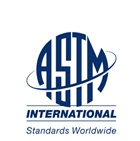Jul 29 2009
A revision to an important ASTM nanotechnology standard incorporates a large-scale interlaboratory study that took place in 2008. The revised standard, ASTM E2490, Guide for Measurement of Particle Size Distribution of Nanomaterials in Suspension by Photon Correlation Spectroscopy (PCS), is under the jurisdiction of Subcommittee E56.02 on Characterization: Physical, Chemical and Toxicological Properties, part of ASTM International Committee E56 on Nanotechnology.

According to Alan Rawle, applications manager, Malvern Instruments Inc., and co-chair, E56.02, the interlaboratory study involved 26 laboratories taking a total of 7,700 measurements. Measurements were made using several corroborative techniques including photon correlation spectroscopy, the subject of ASTM E2490. Rawle also gratefully acknowledges that the cooperation and involvement of personnel from the National Institute of Standards and the National Cancer Institute was instrumental in ensuring the success of the interlaboratory study.
PCS is also known as dynamic light scattering or quasi-elastic light scattering. This technique is used to measure the size of very small particles (typically smaller than 100 nm, all the way down to 1 nm or less).
Rawle says that characterization of size distribution was one of three key parameters (the others being composition and morphology) identified by members as being key to the development of nanotechnology. The panel considered the development of standards to be crucial to the growth of nanotechnology.
"Manufacturers already making nanomaterials on a routine basis will need ASTM E2490 to understand the basis of the technique and the constraints, especially from the precision and bias study," says Rawle. "The document can be used for training newcomers to the technique as it is a practice guide rather than a recipe-based standard. For researchers in the field, it is essential that size distribution data is available as this is one of the prime characterization parameters."
Users of ASTM E2490 are found in both industry and research where nanomaterials are synthesized, specified or utilized. The standard is also key to environmental and legislative concerns related to nanomaterials.
Subcommittee E56.02 welcomes input from all who are interested in future revisions to ASTM E2490. "It would be great to see participation by end users in both materials standards and also the associated paper documentation," says Rawle. "E56 welcomes representatives of university research groups and industry."
ASTM International standards are available for purchase from Customer Service (phone: 610-832-9585; [email protected] ) or at www.astm.org.
For technical information, contact: Alan Rawle, Malvern Instruments Inc., Westborough, Mass. (phone: 508-768-6400 ext. 434; [email protected] ). ASTM Committee E56 meets Nov. 9-10 during November committee week in Atlanta, Ga.